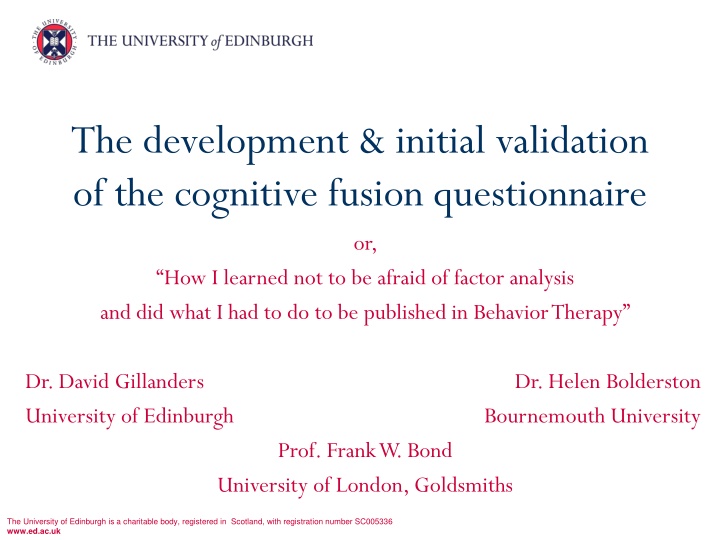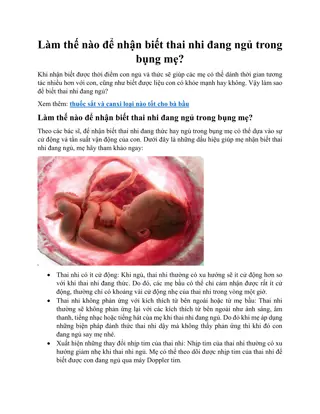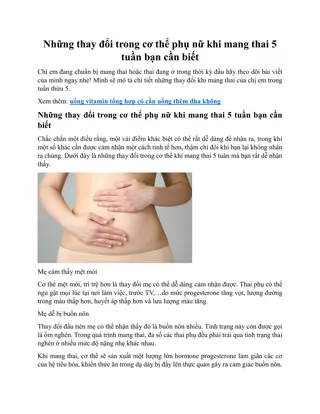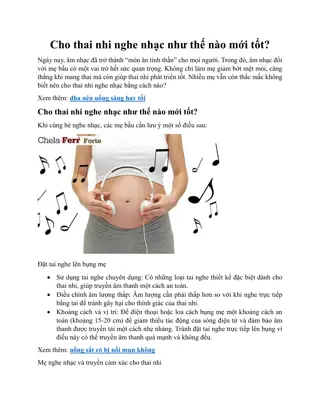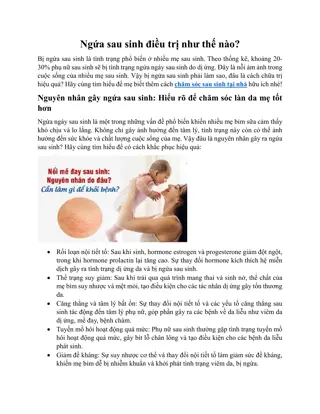Cognitive Fusion Questionnaire Development and Validation Process
Explore the journey of developing and validating the Cognitive Fusion Questionnaire, aimed at understanding the relationship between thoughts and actions. The study delves into the concepts of cognitive fusion and defusion, proxy measures, item development, and the initial item pool, shedding light on the research process and the collaboration between various academic institutions.
Download Presentation

Please find below an Image/Link to download the presentation.
The content on the website is provided AS IS for your information and personal use only. It may not be sold, licensed, or shared on other websites without obtaining consent from the author.If you encounter any issues during the download, it is possible that the publisher has removed the file from their server.
You are allowed to download the files provided on this website for personal or commercial use, subject to the condition that they are used lawfully. All files are the property of their respective owners.
The content on the website is provided AS IS for your information and personal use only. It may not be sold, licensed, or shared on other websites without obtaining consent from the author.
E N D
Presentation Transcript
The development & initial validation of the cognitive fusion questionnaire or, How I learned not to be afraid of factor analysis and did what I had to do to be published in Behavior Therapy Dr. David Gillanders University of Edinburgh Dr. Helen Bolderston Bournemouth University Prof. Frank W. Bond University of London, Goldsmiths The University of Edinburgh is a charitable body, registered in Scotland, with registration number SC005336 www.ed.ac.uk
Cognitive Fusion & Defusion Thoughts themselves are not seen as problematic The function of thoughts to lead to action is problematic Content plus contextual cueing The University of Edinburgh is a charitable body, registered in Scotland, with registration number SC005336 www.ed.ac.uk
Proxy measures Despite the centrality of fusion prior to our measure it was measured using the proxy of believability of thoughts This is a narrow definition of what we mean by defusion / fusion So we saw a gap .. The University of Edinburgh is a charitable body, registered in Scotland, with registration number SC005336 www.ed.ac.uk
Item development Maria Dempster (2007) Prof Frank Bond (University of London, Goldsmiths) & Helen Bolderston (University of Southampton) Items generated based on knowledge of the literature, clinical experience and personal experience The University of Edinburgh is a charitable body, registered in Scotland, with registration number SC005336 www.ed.ac.uk
Item development Breadth of definition: dominance of cognitive events in a person s experience, inability to view cognitive events from a different perspective, reacting emotionally to thoughts, behavior being highly regulated by cognitive events, attempts to control thinking, over analysis of situations, evaluating and judging thought content, as well as aspects of literality and believability. The University of Edinburgh is a charitable body, registered in Scotland, with registration number SC005336 www.ed.ac.uk
Initial item pool 42 items from Edinburgh and 27 items from Dorset Fusion and defusion wordings Positively and negatively keyed The University of Edinburgh is a charitable body, registered in Scotland, with registration number SC005336 www.ed.ac.uk
Initial item pool I get very focussed on distressing thoughts I feel like my thoughts need to change before I can have a good life I over-analyse situations to the point where it s unhelpful to me My thoughts cause me distress or emotional pain I get so caught up in my thoughts that I forget what I m actually doing I get upset with myself for having certain thoughts I tend to get very entangled in my thoughts I need to control the thoughts that come into my head I tell myself that I shouldn t be thinking the way I m thinking I make judgements about whether my thoughts are good or bad I find it easy to view my thoughts from a different perspective I can be aware of my thoughts without necessarily reacting to them The University of Edinburgh is a charitable body, registered in Scotland, with registration number SC005336 www.ed.ac.uk
Expert Panel Review Initial list of items rated by ACT experts Items rated as moderately or highly representative 42 items selected Some wording tweaks The University of Edinburgh is a charitable body, registered in Scotland, with registration number SC005336 www.ed.ac.uk
Instruction set and response scale General rather than specific Chose not to offer a time scale 7 point Likert scale CFQ Below you will find a list of statements. Please rate how true each statement is for you by circling a number next to it. Use the scale below to make your choice. 1 2 3 4 5 6 7 never true very seldom true seldom true sometimes true frequently true almost always true always true The University of Edinburgh is a charitable body, registered in Scotland, with registration number SC005336 www.ed.ac.uk Thank you for completing this questionnaire
Philosophical and conceptual aspects Our background in behaviourism The odd language of psychometrics latent variables traits Playing both games or talking two languages? The University of Edinburgh is a charitable body, registered in Scotland, with registration number SC005336 www.ed.ac.uk
Exploratory factor analysis and item reduction using a student sample UoE students & associates of Maria and David n =592 2189 17 - 24 years 25 - 34 years 35 - 44 years 45 - 55 years over 55 years 174, 29% 173 418, 71% 381 Female Male The University of Edinburgh is a charitable body, registered in Scotland, with registration number SC005336 www.ed.ac.uk
Factor extraction / Item reduction Parallel Analysis (Horn, 1965) suggested 3 factors Increasingly stringent factor loadings The University of Edinburgh is a charitable body, registered in Scotland, with registration number SC005336 www.ed.ac.uk
Item reduction 2 factors explaining 59.8% of the variance 7 fusion scored items and 3 defusion items The University of Edinburgh is a charitable body, registered in Scotland, with registration number SC005336 www.ed.ac.uk
The interim period: 28 and 13 item versions What the article doesn't t say . For several years we collected data with the above versions The 10 item version came through the re analysis of data at the end as we wrote up for publication The University of Edinburgh is a charitable body, registered in Scotland, with registration number SC005336 www.ed.ac.uk
Gathering data on diverse samples Community adult sample including a sample of prison officers (n = 447) Lindsey Campbell (NHS Grampian) Louise Tansey (NHS Lothian / NHS Lanarkshire) Joda Lloyd & Lauraine May (University of London, Goldsmiths) The University of Edinburgh is a charitable body, registered in Scotland, with registration number SC005336 www.ed.ac.uk
Gathering data on diverse samples Work site stress management sample (n = 242) Paul Flaxman (City University) Economic and Social Research Council (ESRC grant no: RES-061-0232) Multiple sclerosis sample (n = 133) Clive Ferenbach (NHS Fife) The University of Edinburgh is a charitable body, registered in Scotland, with registration number SC005336 www.ed.ac.uk
Gathering data on diverse samples Mixed mental health sample (n = 215) Helen Bolderston (University of Southampton) Penelope Noel (NHS Tayside) Samantha Masely (NHS Grampian) Sian Kerr (NHS Grampian) Dementia caregivers (n = 447) Louise Roach (NHS Lothian) The University of Edinburgh is a charitable body, registered in Scotland, with registration number SC005336 www.ed.ac.uk
Investigating the factor structure We spent a lot of time exploring if this really was a 2 factor scale Theoretically these are two sides of the same coin Method Effect or Method Variance (Marsh, 1986) The University of Edinburgh is a charitable body, registered in Scotland, with registration number SC005336 www.ed.ac.uk
The back and forth with reviewers There were 3 revise and resubmit decisions before acceptance on the 4th submission. In the end the reviewers asked us to show that the 3 reversed items actually improved the scale. We did a series of correlational, regression, CFA analyses We couldn t provide evidence that the reverse scored items improved the scale The University of Edinburgh is a charitable body, registered in Scotland, with registration number SC005336 www.ed.ac.uk
The final 7 item scale 1. My thoughts cause me distress or emotional pain 2. I get so caught up in my thoughts that I am unable to do the things that I most want to do 3. I over-analyse situations to the point where its unhelpful to me 4. I struggle with my thoughts 5. I get upset with myself for having certain thoughts 6. I tend to get very entangled in my thoughts 7. It s such a struggle to let go of upsetting thoughts even when I know that letting go would be helpful The University of Edinburgh is a charitable body, registered in Scotland, with registration number SC005336 www.ed.ac.uk
The final CFA of 7 items Factor regression weights: CFQ1 1.000 CFQ2 0.955 CFQ3 1.224 CFQ4 1.210 CFQ5 1.151 CFQ6 1.203 CFQ7 1.394 Fusion CFQ 2 CFQ 4 CFQ 5 CFQ 6 CFQ 1 CFQ 3 CFQ 7 e1 e2 e3 e4 e5 e6 e7 The University of Edinburgh is a charitable body, registered in Scotland, with registration number SC005336 www.ed.ac.uk
The final CFA of 7 items 2 2 df CFI Sample df IFI RMSEA Community (n=448) 40.857* 14 2.918 .986 .986 .065 Stress management (n= 242) Mixed mental health (n = 215) Multiple Sclerosis (n = 133) 44.388* 14 3.171 .971 .971 .095 20.333 14 1.452 .991 .991 .046 25.852 14 1.847 .983 .983 .101 Dementia Caregivers (n = 219) 45.024* 14 3.216 .962 .963 .101 The University of Edinburgh is a charitable body, registered in Scotland, with registration number SC005336 www.ed.ac.uk
Psychometric Properties Student & Community (n = 1040) Work stress (n = 242) Mental Health (n = 215) Multiple Sclerosis (n = 133) Dementia caregivers (n = 219) 22.28a (8.30) 25.84b (8.52) 34.31c (8.06) 21.22a (10.36) 23.48a (8.24) Mean (SD) Cronbach s .90 .92 .88 .93 .90 F (4,1844) = 96.87, p <.0001 1 month test retest reliability: r = .80, p <.001 (Community sample n = 82) The University of Edinburgh is a charitable body, registered in Scotland, with registration number SC005336 www.ed.ac.uk
Convergent validity Mindfulness and acceptance measures AAQII .80 1020 SMS -.70 167 FFMQ -.50 47 KIMS -.59 78 CFQ n The University of Edinburgh is a charitable body, registered in Scotland, with registration number SC005336 www.ed.ac.uk
Convergent validity Measures of distress / emotional disturbance HADSa .69 277 HADSd .54 277 BDI-II .69 77 SCL90-GSI .62 77 CFQ n The University of Edinburgh is a charitable body, registered in Scotland, with registration number SC005336 www.ed.ac.uk
Convergent validity Measures of quality of life, living well, satisfaction Deiner s -.39 167 WHOQoL -.45 113 Job satisfaction -.42 144 VLQ - success -.21 109 CFQ n The University of Edinburgh is a charitable body, registered in Scotland, with registration number SC005336 www.ed.ac.uk
Incremental validity Prediction of distress in multiple sclerosis over and above helplessness and psychological flexibility R2 .181 R2 change .181 Step 1 Variable Helplessness beliefs (ICQ) Helplessness beliefs (ICQ) AAQ-II Helplessness beliefs (ICQ) AAQ-II CFQ t p p .426 5.384 <.001 <.001 2 .130 2.328 .021 .655 .474 <.001 .749 .116 13.37 2.098 <.001 .038 3 .670 .015 .017 .561 .229 5.897 2.416 <.001 .017 The University of Edinburgh is a charitable body, registered in Scotland, with registration number SC005336 www.ed.ac.uk
Sensitivity to treatment effects For the whole sample 35 30 25 20 ACT Control 15 10 5 0 Pre intervention Post intervention 3 month follow up Group by time interaction: F(2,113) = 9.998, p <.001, partial 2 = .150 (large effect) The University of Edinburgh is a charitable body, registered in Scotland, with registration number SC005336 www.ed.ac.uk
So what do we have? A brief, psychometrically robust measure that has a theoretically and empirically valid factor structure, across diverse samples, that correlates as it should with other constructs, and has incremental validity in comparison to them, that is stable across time, but sensitive to intervention and that such changes mediate the impact of that intervention. The University of Edinburgh is a charitable body, registered in Scotland, with registration number SC005336 www.ed.ac.uk
So what do we have? A useful tool in the hands of clinicians and researchers A good publication in Behavior Therapy The University of Edinburgh is a charitable body, registered in Scotland, with registration number SC005336 www.ed.ac.uk
Reflecting on the process of publication We departed from our initial behavioural stand point The introduction was totally re-written to talk the psychometric language more clearly The scale is very different to how we started Broad to narrow The data is your friend The University of Edinburgh is a charitable body, registered in Scotland, with registration number SC005336 www.ed.ac.uk
Translations Currently translated into: Dutch, French, Spanish, German, Portuguese (European and Brazilian), Japanese, Hebrew, Greek, Turkish, Catalan, Polish, Italian, Farsi, Chinese & Korean. The University of Edinburgh is a charitable body, registered in Scotland, with registration number SC005336 www.ed.ac.uk
CFQ News >2400 views on Scopus Cited in 31 papers Ongoing studies in our lab in cancer, fear of recurrence, muscle disease, healthy ageing, self help treatment. Development of a state version by Helen Bolderston The University of Edinburgh is a charitable body, registered in Scotland, with registration number SC005336 www.ed.ac.uk
A scientific development community All of this has been possible through the international ACBS community www.contextualscience.org CFQ The University of Edinburgh is a charitable body, registered in Scotland, with registration number SC005336 www.ed.ac.uk
UoE Graduates: Dr Maria Dempster Dr Lindsey Campbell Dr Sian Kerr Dr Louise Tansey Dr Penelope Noel Dr Clive Ferenbach Dr Samantha Masely Dr Louise Roach Dr Emma Miller Dr Ashleigh Sinclair Dr Louise Keir Current UoE Trainees: Kate Randall Shane Forde Dr Christopher Graham The University of Edinburgh is a charitable body, registered in Scotland, with registration number SC005336 www.ed.ac.uk Victoria Thomson External Partners: Dr Helen Bolderston (Bournemouth University) Prof Frank Bond (U. of London, Goldsmiths) Dr Paul Flaxman (City University, London) Dr Joda Lloyd (U. of London, Goldsmiths) Ms Lauraine May (U. of London, Goldsmiths) Prof Susan Clarke (U. of Bournemouth) Prof Bob Remington (U. of Southampton)
